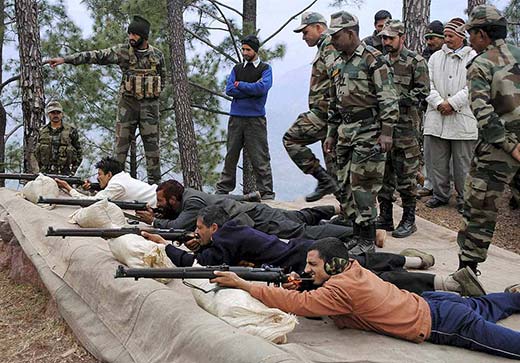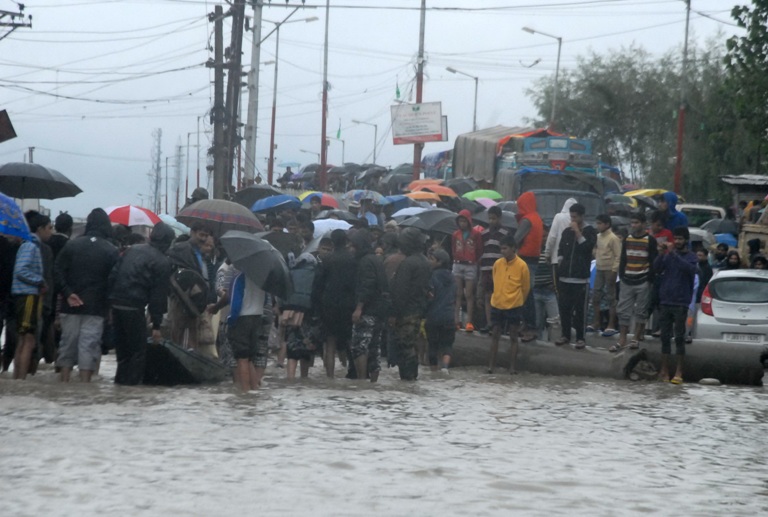by Yawar Hussain
SRINAGAR: The Jammu and Kashmir Services Selection Board (JKSSB) has collected Rs 77 crore as examination fees from March 2016 to September 2020 while not conducting the exam in various recruitment processes.
The information has been revealed by the department in response to a Right to Information (RTI) application.
As per the official data, the JKSSB collected Rs 5 crore (Rs 5, 32, 33733) from March 2016 to December 2016 as an examination fee for various posts advertised by the department.
As per the details, the JKSSB charges approximately Rs 350 per post for a non-gazetted position while the Union Public Service Commission which conducts the Civil Services Examination and other gazetted post examinations charge just Rs 100 per post.
What is more wondrous is the fact that the JKSSB in the RTI reply has revealed that in around 300 odd recruitment processes, for which the fee from aspirants was collected, the board never conducted exams.
RTI activist Raja Muzaffar Bhat, who had filed the application said that at least around one lakh youth would have applied for these 300 odd recruitment processes, the exams of which were never conducted.
“The JKSSB has looted that money. They charged the money for exams that were never conducted. They have cited General Administration Department’s directions for cancelling the advertised posts,” Bhat said.
As per the RTI, the JKSSB collected Rs 16 crore (Exact Rs 161442645) as a fee in 2017; Rs 27 crore (Rs 277705480) in 2018; Rs 6 crore (60738410) in 2019: and whopping Rs 21crore (Rs 217827164) from January 2020 to September 2020.
Bhat said that the JKSSB has become the “revenue generation board” of the government which is fleecing the unemployed youth on the pretext of the fee.
“I would like to ask the government whether the JKSSB is a corporate house or a recruitment facilitating agency,” he said, adding that the unemployment rate has been at an all-time high in Jammu and Kashmir.
Meanwhile, an aspirant from Jammu said that the JKSSB wasn’t just charging an exorbitant fee but were also charging a fee for the same exam twice.
He said the JKSSB advertised posts of Junior Engineer of various departments with a single exam to be conducted.
“Any engineering diploma or degree holder was eligible for those posts. The exam was single but the JKSSB charged Rs 350 for every department’s JE post separately instead of charging just once,” he said, adding that such things happen in all the posts advertised by the board.
The state of unemployment in the public sector can be gauged from the fact that the Jammu and Kashmir Services Selection Board (JKSSB) has last month issued the examination calendar for posts that have been advertised as back as 2006.
The written test for posts of Assistant Information Officer G-II, advertised for Jammu and Kashmir cadres separately in 2006, is yet to be completed. The JKSSB has now scheduled the written test on December 20, 2020.
Similarly, the written test for Assistant Information Officer G-II of state cadre, advertised in 2008, is also yet to be conducted. The examination has now been set for December 20 this year.
The written test for Assistant Information Officer of state cadre, advertised in 2010 is also pending.
The scenario is the same for posts advertised by all departments through JKSSB.
The Junior Assistant posts advertised by Revenue, Forest, Education, Health and Medical Education, Labour & Employment, Public Works Department, Law Department, Technical Education, Youth and Sports Services, Rural Development, Power and General Administration departments in 2016 are yet in phase-I.
The typing, written and interview for these posts are now scheduled in December.
Also, the recruitment process for Junior Stenographer posts of various departments, advertised in 2014 and 2015 are yet to be completed.
As per the Centre for Monitoring Indian Economy (CMIE) report titled “Unemployment in India: A Statistical Profile”, the Labour Participation Rate (LPR) has gone down to 38.11 per cent for May-August 2020 in comparison to 41.68 per cent during the same period of 2019.
The low LPR percentage indicates that people are neither employed nor looking for employment due to poor economic environment despite their eligibility to enter the labour market.















